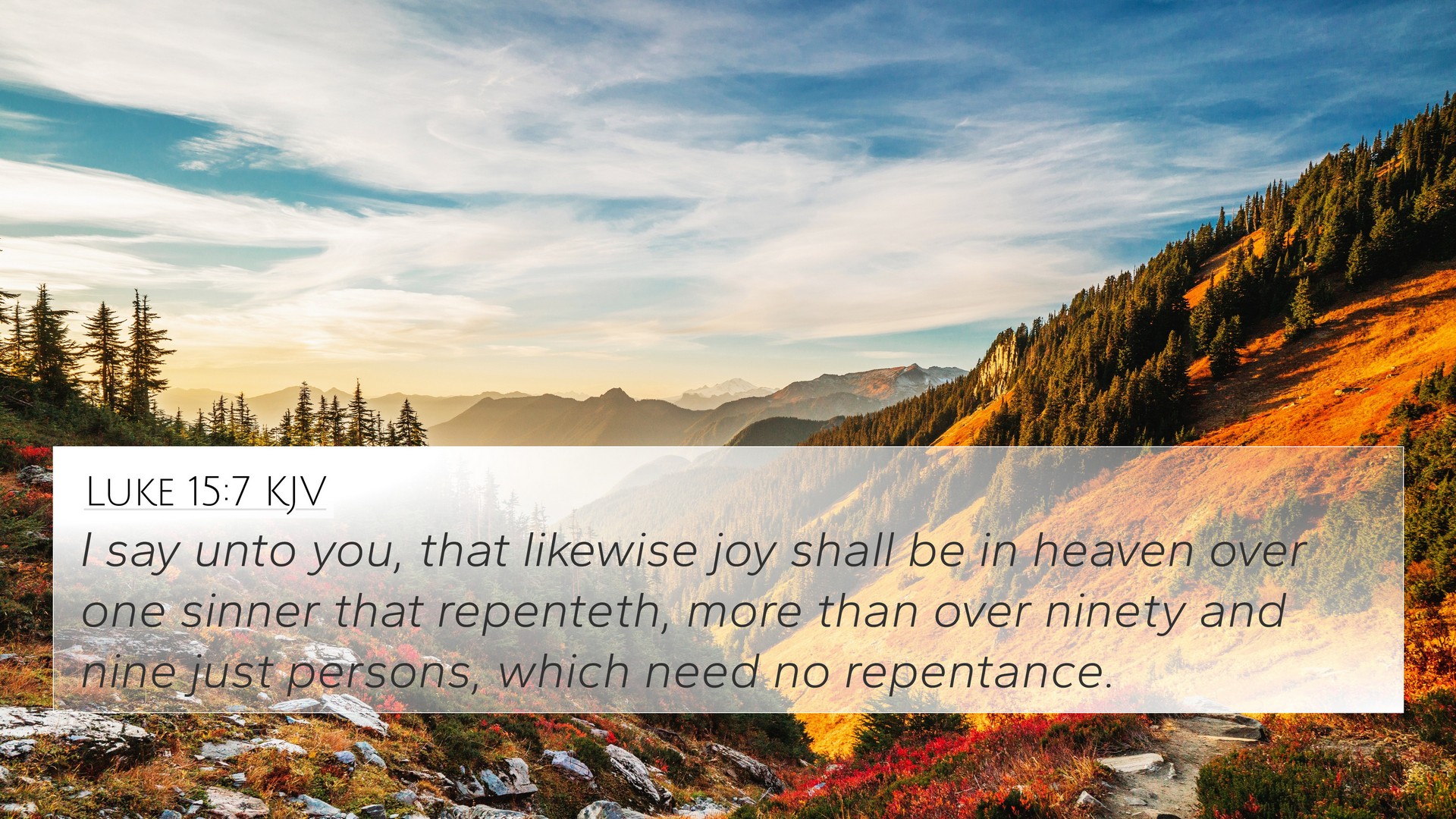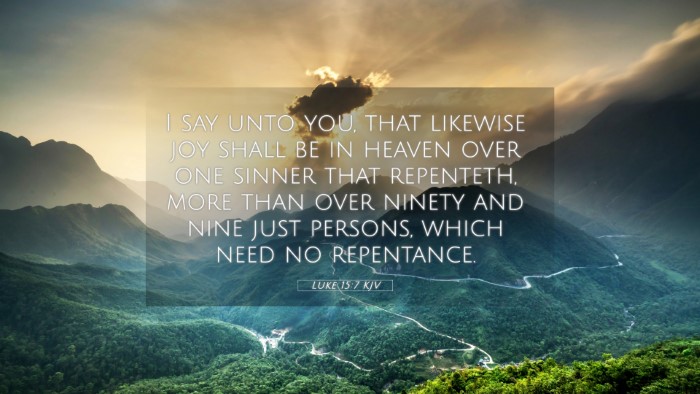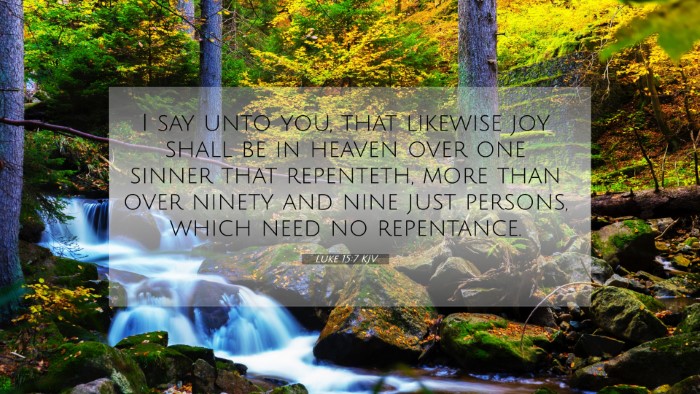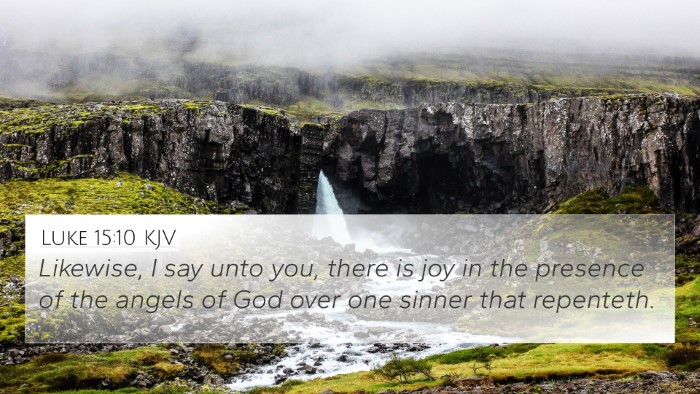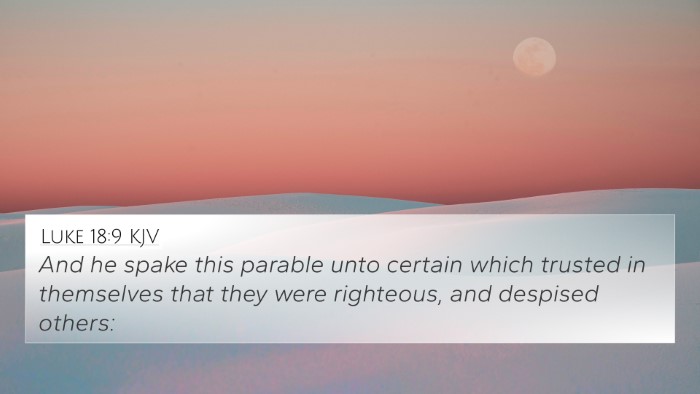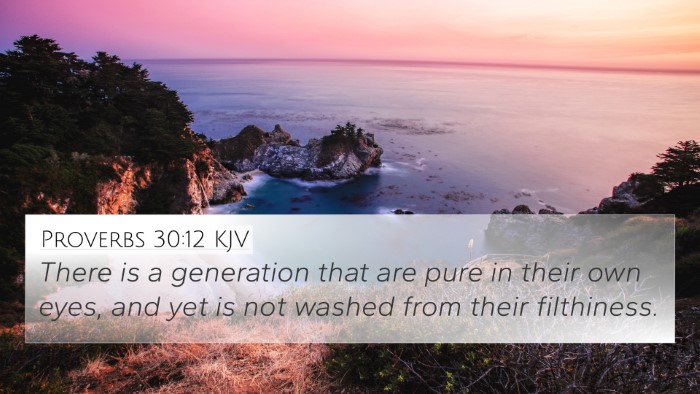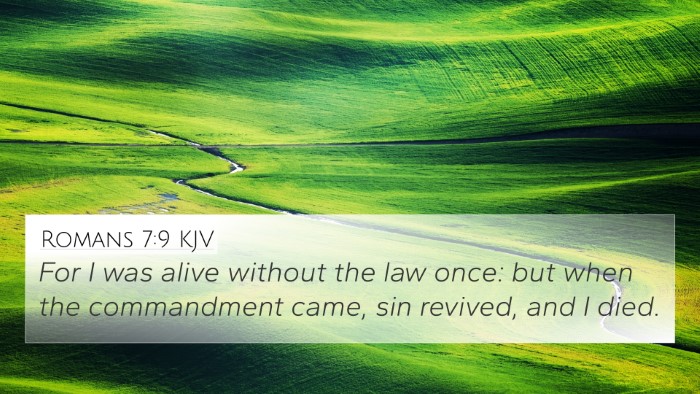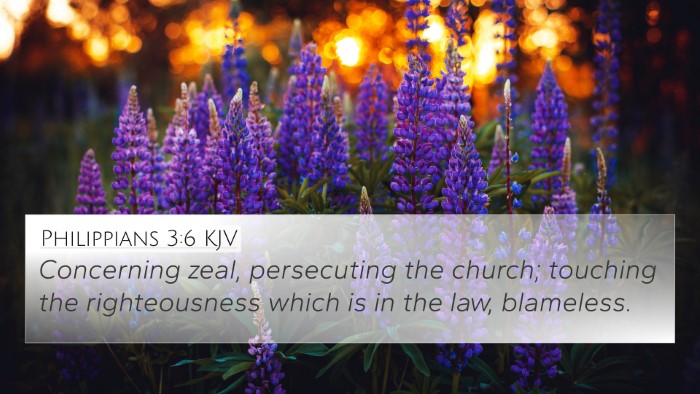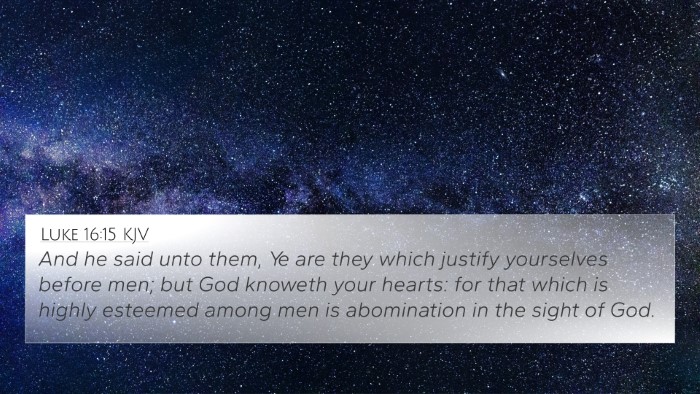Understanding Luke 15:7
Luke 15:7 states: "I tell you that in the same way there will be more rejoicing in heaven over one sinner who repents than over ninety-nine righteous persons who do not need to repent." This verse emphasizes the immense value of a single soul returning to God and the joy that accompanies repentance. It is a key verse that illustrates God's grace and love, central to the message of the Gospel.
Commentary Insights
In exploring the meaning of Luke 15:7, various public domain commentaries provide depth and understanding:
-
Matthew Henry:
Henry explains that this verse follows the parable of the lost sheep, outlining God's concern for individual sinners. He highlights that the joy in heaven symbolizes God's readiness to forgive and welcome back those who stray. The emphasis is on repentance as the catalyst for divine joy.
-
Albert Barnes:
Barnes elaborates that Jesus illustrates God's love and the joy of reconciliation. He contrasts the joy of heaven over the repentant sinner with indifference towards those who believe they are already righteous, urging people to remain humble and aware of their own need for repentance.
-
Adam Clarke:
Clarke emphasizes the broader implications of joy in heaven, suggesting that it serves as an example for earthly behavior. The heaven's rejoicing highlights the community aspect of faith, suggesting that one person's return strengthens the entire body of Christ.
Thematic Connections
This verse connects deeply with several other biblical themes and verses:
- Luke 5:32: "I have not come to call the righteous, but sinners to repentance."
- Matthew 18:12-14: the Parable of the Lost Sheep, which emphasizes God’s love for each individual.
- James 5:19-20: discussing turning a sinner from error and saving their soul.
- 2 Peter 3:9: God's desire for all to come to repentance.
- Psalm 51:17: "The sacrifices of God are a broken spirit; a broken and contrite heart, O God, thou wilt not despise."
- Isaiah 55:7: "Let the wicked forsake his way, and the unrighteous man his thoughts..." emphasizing the call to repentance.
- Luke 19:10: "For the Son of Man came to seek and to save the lost."
Cross-Referencing Biblical Texts
Luke 15:7 demonstrates a profound theme in Christianity that emphasizes the joy of reconciliation and the reaching out for those who are lost. These cross-references help establish connections between various biblical texts, providing a comprehensive understanding of this theme:
- John 3:16-17: Illustrating God's love for the world and intent to save humanity.
- Hebrews 12:2: Comparing the joy set before Christ with the joy of repentance.
- Matthew 9:13: Jesus reiterates His mission among sinners.
- Luke 13:3: Call to repentance: "But unless you repent, you too will all perish."
- Acts 3:19: "Repent, then, and turn to God, so that your sins may be wiped out..."
- Romans 5:8: Demonstrating God's love through the sacrifice for sinners.
Bible Study Tools
For those looking to delve deeper into the theme of repentance and the joy of salvation, the following tools for Bible cross-referencing may be helpful:
- Bible Concordance for locating related verses.
- Bible Cross-reference guides for understanding biblical connections.
- Bible chain reference systems that link themes and verses together.
- Online Bible study resources that provide access to detailed analyses.
Conclusion
Luke 15:7 serves as a cornerstone in understanding God's heart toward sinners and the joy that accompanies repentance. By exploring cross-references and various commentaries, readers can gain a holistic understanding of God's grace, the call to repentance, and the community's joyful response to the return of the lost.
